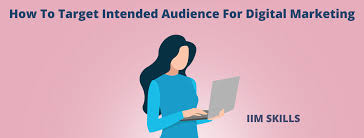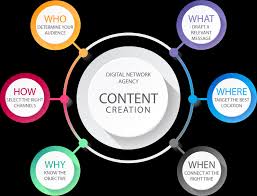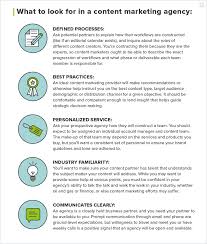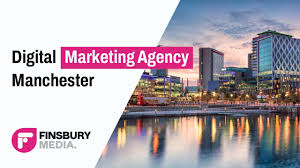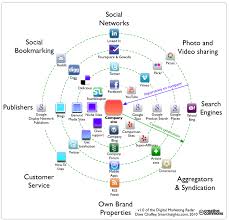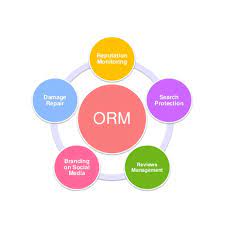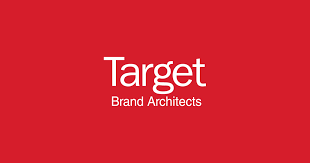Unlocking Success: Understanding the Target Market for Your Digital Marketing Agency
The Importance of Identifying the Target Market for Digital Marketing Agencies
In the fast-paced world of digital marketing, understanding your target market is crucial for the success of any agency. By defining and analysing your target audience, digital marketing agencies can tailor their strategies to effectively reach and engage with potential customers.
Who is the Target Market for Digital Marketing Agencies?
The target market for digital marketing agencies varies depending on the services they offer and their areas of expertise. However, in general, the target market includes businesses of all sizes looking to enhance their online presence, reach a wider audience, and drive conversions.
Small businesses often seek digital marketing agencies to help them establish a strong online presence and compete with larger competitors. Medium-sized enterprises may require more advanced strategies to scale their operations and increase brand awareness. Large corporations may look for specialised services such as data analytics or social media management.
Why Identifying the Target Market is Important
Identifying the target market allows digital marketing agencies to create tailored campaigns that resonate with specific demographics, interests, and behaviours. By understanding who their ideal customers are, agencies can allocate resources more effectively and maximise ROI.
Moreover, targeting a specific audience enables agencies to craft personalised messages that speak directly to their needs and pain points. This approach not only increases engagement but also fosters long-term relationships with clients.
How to Identify and Reach the Target Market
To identify the target market, digital marketing agencies can conduct market research, analyse data from past campaigns, and create buyer personas that represent their ideal customers. By segmenting audiences based on demographics, psychographics, and behaviour patterns, agencies can develop targeted strategies that yield better results.
Reaching the target market involves using various digital channels such as social media, search engine optimisation (SEO), email marketing, content creation, and paid advertising. By leveraging these channels strategically and monitoring performance metrics closely, agencies can refine their approach and continuously optimise campaigns for maximum impact.
In Conclusion
Understanding the target market is essential for digital marketing agencies seeking to deliver effective campaigns that drive results for their clients. By identifying who they are trying to reach and tailoring their strategies accordingly, agencies can position themselves as valuable partners in helping businesses achieve their marketing goals in today’s competitive digital landscape.
Understanding and Reaching Your Target Market: Key FAQs for Digital Marketing Agencies
- What is a target market in the context of digital marketing agencies?
- How important is it to identify the target market for a digital marketing agency?
- What factors should digital marketing agencies consider when defining their target market?
- How can digital marketing agencies conduct market research to understand their target market?
- Why is creating buyer personas essential for reaching the target market effectively?
- Which digital channels are commonly used by digital marketing agencies to reach their target market?
What is a target market in the context of digital marketing agencies?
In the context of digital marketing agencies, a target market refers to the specific group of individuals or businesses that the agency aims to reach with its marketing efforts. Identifying a target market involves understanding the demographics, interests, behaviours, and preferences of potential customers who are most likely to engage with the agency’s services. By defining a clear target market, digital marketing agencies can create tailored strategies and campaigns that resonate with their audience, leading to more effective communication, higher engagement levels, and ultimately, better results for their clients.
How important is it to identify the target market for a digital marketing agency?
Understanding the target market is paramount for the success of a digital marketing agency. Identifying the target market allows agencies to focus their efforts on reaching the right audience with tailored strategies that resonate with their specific needs and preferences. By defining the target market, digital marketing agencies can allocate resources effectively, create personalised campaigns, and maximise return on investment. Ultimately, knowing the target market enables agencies to craft compelling messages that drive engagement and build long-lasting relationships with clients, positioning them as valuable partners in achieving marketing objectives in today’s competitive digital landscape.
What factors should digital marketing agencies consider when defining their target market?
When defining their target market, digital marketing agencies should consider a range of factors to ensure their strategies are effective and tailored to the right audience. Key considerations include demographics (such as age, gender, income level), psychographics (such as interests, values, lifestyle), behaviour patterns (online habits, purchasing behaviours), geographic location, industry sector, competition analysis, and the specific needs and pain points of potential clients. By taking these factors into account, digital marketing agencies can create targeted campaigns that resonate with their ideal customers and drive successful outcomes.
How can digital marketing agencies conduct market research to understand their target market?
Digital marketing agencies can conduct market research to understand their target market by employing various strategies and tools. They can start by analysing existing data from past campaigns to identify trends and patterns in customer behaviour. Creating detailed buyer personas based on demographics, interests, and online behaviour can also provide valuable insights into the target audience. Additionally, conducting surveys, interviews, and focus groups can help gather direct feedback from customers and refine targeting strategies. Utilising digital analytics tools to track website traffic, social media engagement, and campaign performance metrics is crucial for monitoring audience response and adjusting tactics accordingly. By combining these methods, digital marketing agencies can gain a comprehensive understanding of their target market and tailor their strategies for maximum impact.
Why is creating buyer personas essential for reaching the target market effectively?
Creating buyer personas is essential for reaching the target market effectively because it allows digital marketing agencies to humanise their audience and gain a deeper understanding of their customers’ needs, preferences, and behaviours. By developing detailed profiles that represent different segments of the target market, agencies can tailor their strategies to resonate with specific demographics, interests, and pain points. This personalised approach enables agencies to craft compelling messaging, choose the most relevant channels, and deliver content that speaks directly to the target audience. Ultimately, creating buyer personas helps digital marketing agencies connect with customers on a more meaningful level, driving engagement, loyalty, and conversions.
Which digital channels are commonly used by digital marketing agencies to reach their target market?
Digital marketing agencies commonly utilise a variety of digital channels to reach their target market effectively. These channels include social media platforms such as Facebook, Instagram, Twitter, and LinkedIn, where agencies can engage with audiences, share content, and run targeted advertising campaigns. Search engine optimisation (SEO) is another crucial channel that helps agencies improve their visibility in search engine results and drive organic traffic to their clients’ websites. Email marketing remains a popular choice for reaching out to potential customers with personalised messages and promotions. Additionally, content marketing through blogs, videos, and infographics allows agencies to provide valuable information to their target audience and establish thought leadership in their industry. Paid advertising channels like Google Ads and display advertising help digital marketing agencies reach a wider audience and drive conversions effectively. By utilising a mix of these digital channels strategically, agencies can maximise their reach and engagement with their target market.




